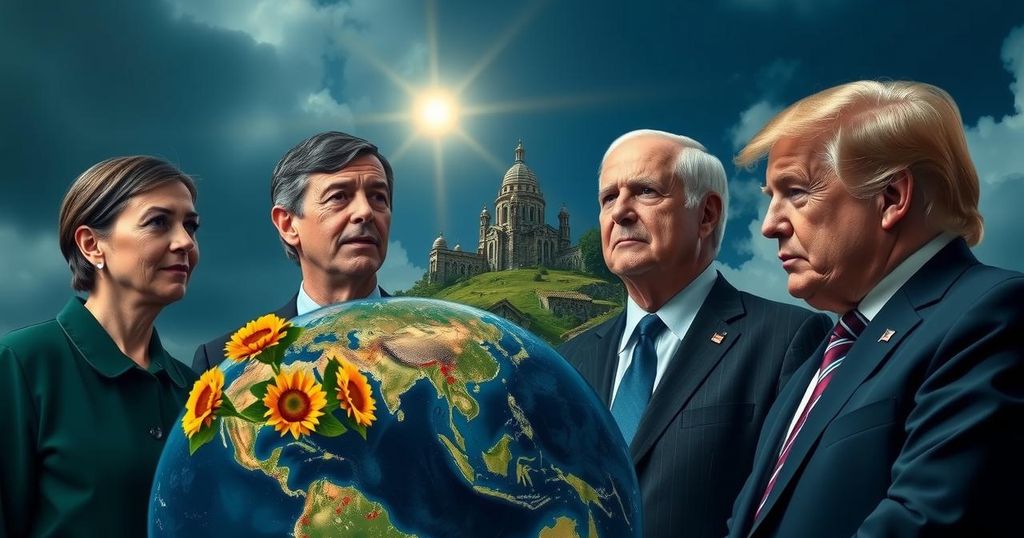COP29: Bridging the Gap Between Climate Rhetoric and the Reality of Change
The article highlights the stark contrast between political promises regarding climate action and the alarming reality of rapid climate change. With the 1.5C temperature threshold already reached and predictions of further rises exceeding 2.7C, the urgency for action is critical, calling for aggressive emission reductions. Meanwhile, successful examples like the EU demonstrate possibilities for aligning economic growth with emission cuts, amid global hesitance at events like COP29.
The political narrative surrounding climate action is fraught with contradictions, as many leaders express a commitment to addressing climate issues while failing to confront the grim reality of accelerating climate change. The anticipated net zero emissions targets that extend to 2050 ignore the alarming fact that we have already reached the critical threshold of a 1.5C increase in global temperatures. The COP29 event, despite its optimistic banners, highlights a disturbing disconnect between political rhetoric and scientific urgency. The abrupt increase in global temperatures in 2023 caught climate scientists off guard, indicating that action must escalate to keep climate change within manageable limits. This year has seen sustained record-high temperatures, exacerbating the frequency and severity of natural disasters around the world. While short-term weather patterns contribute to this spike, they alone do not account for the overall trend, as natural systems that previously absorbed carbon are showing signs of reduced efficacy. Researchers, including Philippe Ciais from the French Laboratory of Climate and Environmental Sciences, emphasize a concerning eight-year trend of declining carbon absorption in the northern hemisphere. Should this trend continue, existing climate models would require significant recalibration, demanding even more aggressive emission reductions from nations. Furthermore, the rapid melting of glaciers, particularly in tropical zones, threatens vital water sources for billions of people. Economic ramifications of climate change are also severe; UN Climate Change Executive Secretary Simon Stiell warns that ongoing climate impacts could significantly diminish GDP across nations, compounding the cost of living crisis. The current trajectory predicts a global temperature rise of 2.7C this century unless substantial changes are enacted. Despite these challenges, there are examples of success; the European Union has reduced greenhouse gas emissions while simultaneously fostering economic growth. As COP29 nears its conclusion, the lack of consensus on key issues like climate finance raises concerns over global progress. Leaders must be compelled to act more decisively if the urgent transformations necessary for combating climate change are to unfold in time.
The article discusses the alarming gap between political commitments to climate action and the actual pace of climate change, particularly in light of the recent COP29 summit. It emphasizes the urgency of the climate crisis as several critical temperature benchmarks have already been surpassed. The narrative highlights the disconnect between optimistic political statements and scientific realities, urging for immediate and substantial reductions in global emissions to avert catastrophic impacts.
In conclusion, the article underscores the urgency of the climate crisis and the necessity for immediate, decisive action from political leaders to combat accelerating climate change. With critical thresholds already surpassed, it is imperative for nations to adjust their emission targets and take responsibility for their environmental impact. Notable progress, such as that seen in the EU, serves as a beacon of hope, yet the broader global context requires concerted effort and resolve to change current trajectories in climate policy and action.
Original Source: bylinetimes.com




Post Comment